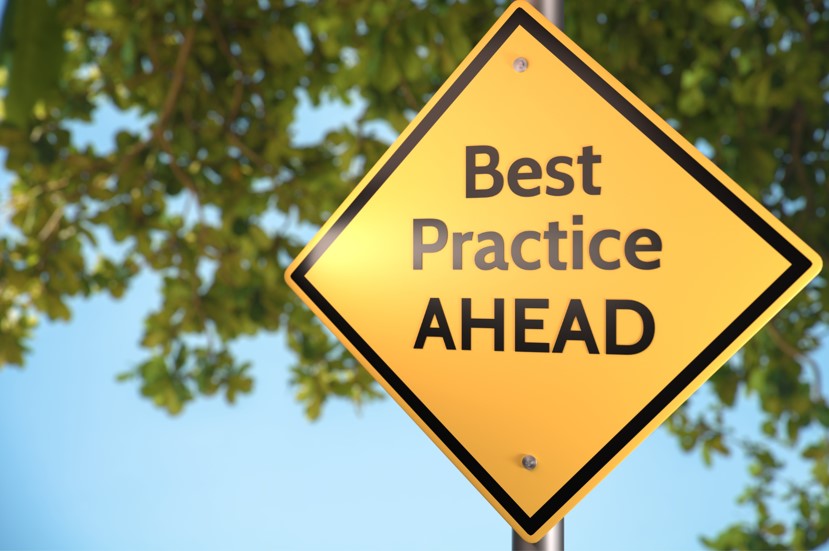In 2022, one of the most effective ways to improve customer relations is to invest in good CRM software. Sales experts and business owners from across the globe have opined that choosing the right CRM software is crucial in closing business deals and making the most out of your business. In this article, we shall discuss the best practices in regard to CRM software that can help you optimize your business. Before that, let’s understand what exactly CRM is.
What is CRM?
Customer Relationship Management, abbreviated as CRM, is a technology designed to manage your company’s interaction with customers or potential customers. The primary objective of CRM software is to improve the company’s relationship with the customers. The main functions of CRM software are to connect with customers, streamline processes, and thereby improve profitability.
CRM software helps with sales and content management, the productivity of your company, and much more.
What is the need for CRM?
Building and maintaining a business is definitely not an easy task. There are so many aspects that need to be taken care of. CRM software can make this process easier for you. CRM aids in managing your organization’s relationship with the individuals, including suppliers, colleagues, and most importantly, customers. From finding new customers and winning their businesses to providing services and support to build lasting relationships, CRM software does it all.
10 CRM best practices in 2022
The market has plenty of CRM software for you to choose from. However, it is crucial to choose and implement CRM software that can aid your business in the best way possible and boost overall sales processes. Here we shall discuss the top ten CRM best practices as of 2022.
#1. Do your research before you buy
Testing out a product before investing in it is a great way to find out whether it suits your specific needs. Most CRM companies offer a demo or trial before selecting a particular CRM. During the demo version, a salesperson walks you through the nitty-gritty aspects of the CRM software. Once you have understood the same, opt for a trial of the product for a few days to understand its advantages and disadvantages. This helps your company save both time and money.
#2. Consider your business’s objectives
While choosing a CRM, it is important to consider your company’s overall objectives and the purpose behind choosing a CRM. Your business goals must connect with the functionality of your CRM software. A few examples of such business objectives are improving customer interactions, streamlining sales processes, promoting business growth, and the like. Remember, while choosing CRM software, you cannot use a one-size-fits-all approach. Every company has different needs and your CRM software should cater to the specific needs of your company.
#3. Opt for a CRM that Reduces Friction
An ideal CRM software should be able to improve customer relationships and reduce the friction between different departments of your company such as sales, service, and marketing. Your CRM software should create a cohesive work environment and boost sales at the same time.
#4. Make the most of your CRM
To optimally use your CRM software, your team must be trained to effectively and efficiently use the CRM software. It is important to train your employees in using CRM. This helps in the smooth functioning of the company and in turn, more closed deals.
#5. Utilize data from CRM to identify target customers
CRM software helps you gather information about potential customers. CRM data can help you identify trends and find new potential customers based on this data. The target customer group of your business may have multiple variables and sub-groups. CRM helps to keep track of such data and make better decisions when it comes to identifying the potential customer base.
#6. Nurture existing relationships with CRM data
While seeking out new customers is crucial, it’s equally important to maintain your current clientele in order to keep your business afloat. You can achieve this by using a CRM to see who is actively using your products.
#7. Utilize CRM Marketing Automation
As mentioned at the beginning of the article, running a business is not an easy task. Monitoring all of your marketing tasks can be time-consuming and expensive. Use any marketing automation features available if you’re using a CRM to save time and money.
#8. Organize Customer Information
When it comes to providing a great customer experience, organization is crucial. CRM software aids in the organization of clients’ data. You can also maintain notes about clients to provide the best experience to your customers. Supercharge your productivity by easily accessing information from CRM while interacting with customers.
To grow your business and clientele, collecting customer data is crucial. However, to keep your data safe and secure, make sure you are utilizing a CRM. This promotes client trust, leading to more successful business transactions.
#9. Improve your Business with CRM
One of the many objectives of CRM software is to improve and streamline the business process. CRM gives you an inside perspective on what is and isn’t working with your sales process in addition to improving customer experience and business efficiency overall.
#10. Use CRM to Automate Sales Tasks
It can be tedious to focus on sales and sales processes at the same time. Important sales activities including appointment tracking, lead follow-ups, and post-sales activities are automated by the CRM tool. It can keep track of all of your sales and marketing activities in one place and notify you when a hot prospect needs extra attention.
These are only a few ways in which you can make optimum use of your CRM software. CRM software was designed to make your life and your employees’ lives easier by automation of data. While opting for CRM software, make sure you choose one that can create the best experience for you as well as your clients. Your CRM software should be able to boost customer relations, streamline processes, and boost your overall productivity.







